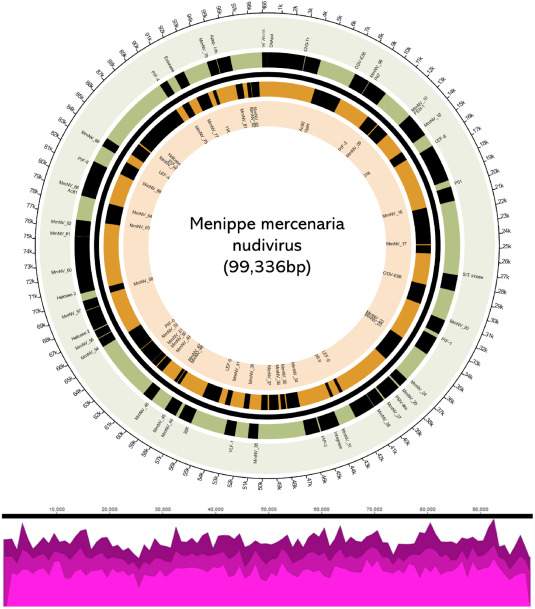Highlights
-
Nudiviruses are present in a range of fished crustaceans, including Menippe mercenaria.
-
This novel nudivirus expands the Nudiviridae and Gammanudivirus genus.
- Pathologically, the virus causes hepatopancreatic damage and may affect the fishery.
- Similar gene synteny appears to be maintained in gammanudiviruses from geographically related hosts.
Abstract
Menippe mercenaria, the Florida stone crab, supports an unconventional fishery across the southern USA and Caribbean that involves claw-removal and the return of de-clawed animals to the sea. We provide pathological, ultrastructural, and genomic detail for a novel hepatopancreatic, nucleus-specific virus – Menippe mercenaria nudivirus (MmNV) – isolated from M. mercenaria, captured during fisheries-independent monitoring.
The virus has a genome of 99,336 bp and encodes 84 predicted protein coding genes and shows greatest similarity to Aratus pisonii nudivirus (ApNV) (<60% protein similarity and 31 shared genes of greatest similarity), collected from the Florida Keys, USA. MmNV is a member of the Gammanudivirus genus (Naldaviricetes: Lefavirales: Nudiviridae). Comparisons of virus genome size, preferred host environment, and gene number revealed no clear associations between the viral traits and phylogenetic position. Evolution of the virus alongside the diversification of host taxa, with the potential for host-switching, remain more likely evolutionary pathways.

